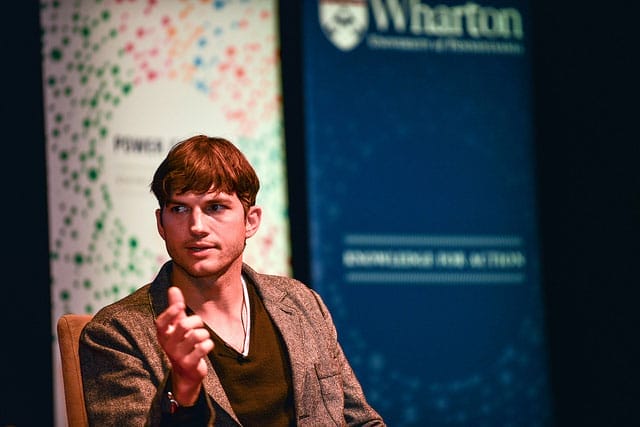At Wharton, we learn the skills necessary to be successful in various industries and to have profitable careers. It seems to be that one of the biggest misconceptions about Wharton students is that making money is all that matters to us.
Undoubtedly, being able to go out in the world and make money is important. But the truth is that being able to go out and make a change in the world is much more important. This value is constantly promoted by the Wharton Social Impact Initiative (WSII), as well as by several student organizations and classes.
Last October, I attended the Lauren and Bobby Turner Social Impact Executive Speaker Series featuring Ashton Kutcher, which was an incredibly inspiring and eye-opening event. Kutcher spoke about his venture capital fund, A-Grade Investments, which has invested in popular companies such as Uber, Foursquare and Skype, and continues to invest in promising, new companies. But the most captivating part of the discussion was when Kutcher spoke about his work with the Thorn Foundation. This organization works to combat the creation and distribution of child pornography and child exploitation. Listening to this discussion, it was easy to sense the passion he has for making a change in the world, driving home the idea of social impact and why it is so important.
 Additionally, Wharton students are doing so much to change the world. Last month, I attended a panel discussion with four MBA students—first-year Matthew Carey, C’07, and second-years Dave Wynne, Priti Joshi and Meghan Doherty—held by the Wharton Undergraduate Giving Society (WUGS). I learned some great lessons listening to the MBAs speak about their experiences at companies where their morals and values were not being reflected, and how they moved to other jobs where they were able to stay true to themselves and what they stood for.
Additionally, Wharton students are doing so much to change the world. Last month, I attended a panel discussion with four MBA students—first-year Matthew Carey, C’07, and second-years Dave Wynne, Priti Joshi and Meghan Doherty—held by the Wharton Undergraduate Giving Society (WUGS). I learned some great lessons listening to the MBAs speak about their experiences at companies where their morals and values were not being reflected, and how they moved to other jobs where they were able to stay true to themselves and what they stood for.
For example, Dave spoke about one employer who essentially taught him to shift the blame onto others for any mistakes he made. A few years later Dave interviewed for another company, and was asked to demonstrate what he would do if there was a customer complaint. Rather than taking blame and owning up to the mistake, Dave expressed how it was essentially the customer’s fault, clearly showing the effects that his negative employer had on him. Needless to say, he failed to get the job; it was at that point when he realized that it is essential for individuals to take ownership of any faults they make, and be responsible for their own actions.
WSII is a tremendous program that continuously inspires students like me, and thanks to programs like the Lauren and Bobby Turner Social Impact Executive Speaker Series and the WUGS MBA panel, I and my classmates are already learning valuable lessons about how to use our future careers to make a difference.
When my time at Wharton is over, I hope to go out and find a career that is lucrative, but—above all else—one that aligns with my values and allows me to give back in some way. At some point in my career, I plan on creating a nonprofit organization that empowers young people to attain their professional goals and helps them to gain the skills to do so. I hope to do this through in-person events such as workshops and conferences, but also through the use of a social media platform—somewhat of a LinkedIn for kids.
Editor’s note: This blog originally appeared on the Wharton Undergraduate Program’s Student Voices blog on March 26, 2014.


























